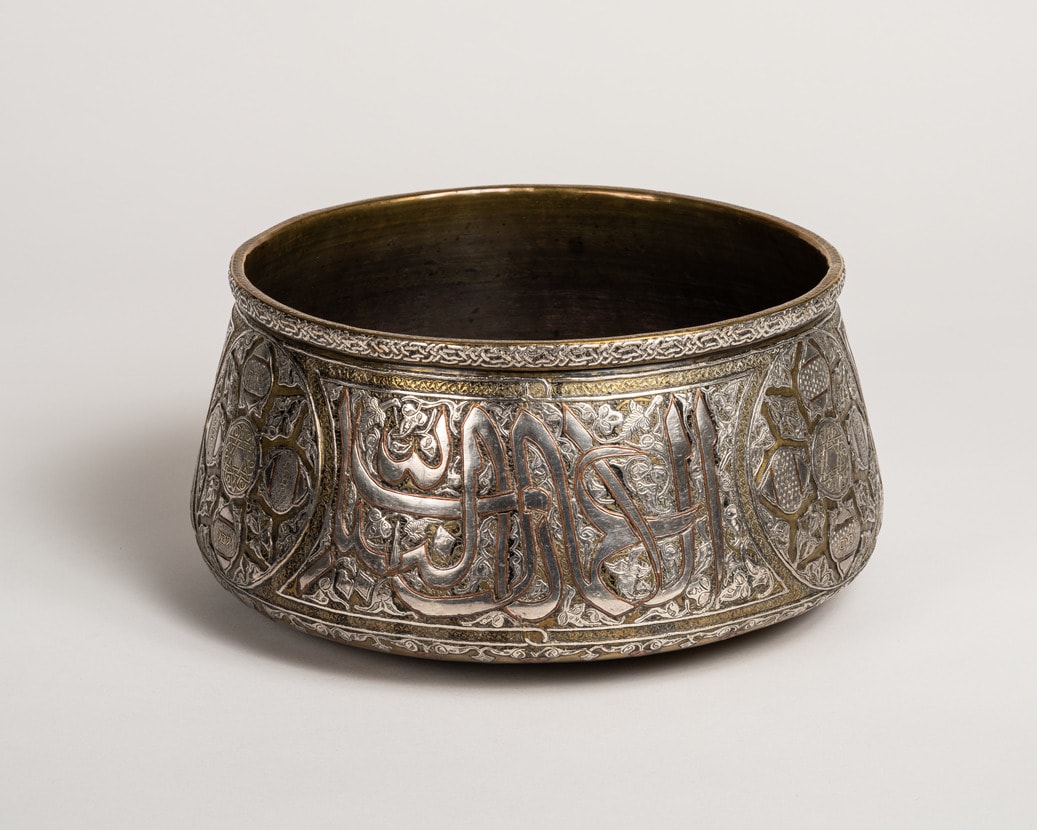
- Object Name:
- Bowl
- Title:
- Mamluk Revival Style
- Place Made:
- Damascus (Syria)
- Date:
- 1904/1905 (date of inscription)
- Medium:
- Brass: inlaid with silver, copper, and gold
- Dimensions:
- 5 1/2 × 11 1/16 in. (14 × 28.1 cm)
- Credit Line:
- Gift of Dr. Harry G. Friedman
- Accession Number:
- F 919
On View
This bowl bears four-petal flowers with double interlaced Stars of David. It is inscribed with the date in Hebrew, “Damascus work, the year [5]665,” and with Arabic proverbs—“Whoever is patient attains,” “Deeds accord with intentions,” and “According to a person’s intentions, so is done unto him”—and a Hebrew Bible verse, “Cast thy bread upon the waters, for thou shalt find it after many days” (Ecclesiastes 11:1).
In the Mideast, the Mamluk Revival style (1878– 1914) arose to satisfy the tastes of European collectors and tourists. In Damascus, Mamluk-style metal inlay was done primarily by Jews. Their workshops became a training ground for artists of the Bezalel School of Arts and Crafts, founded in Jerusalem in 1906.
In the Mideast, the Mamluk Revival style (1878– 1914) arose to satisfy the tastes of European collectors and tourists. In Damascus, Mamluk-style metal inlay was done primarily by Jews. Their workshops became a training ground for artists of the Bezalel School of Arts and Crafts, founded in Jerusalem in 1906.
Information may change as a result of ongoing research.